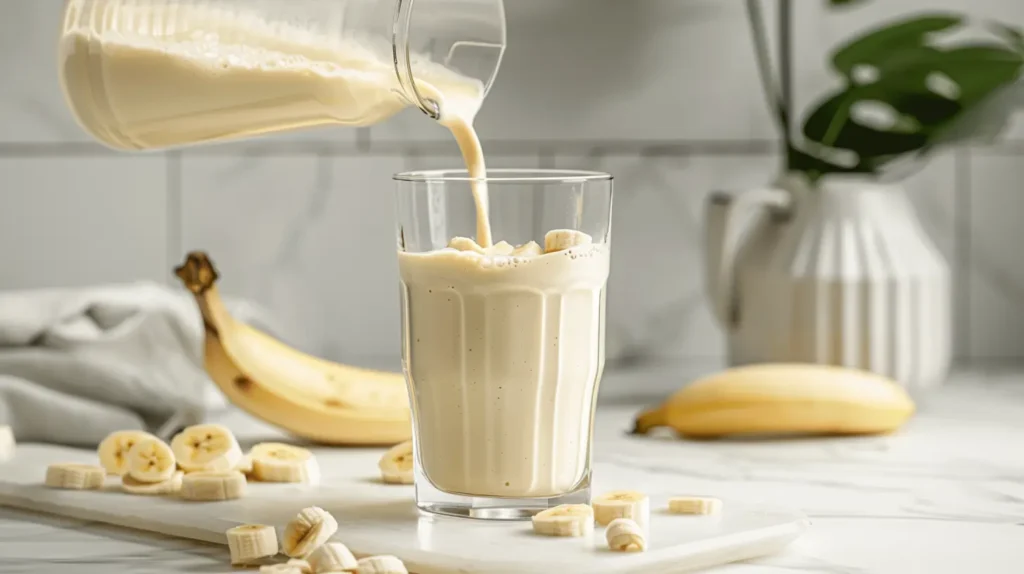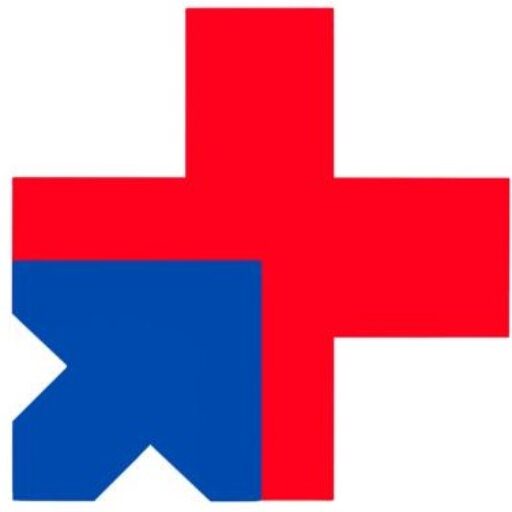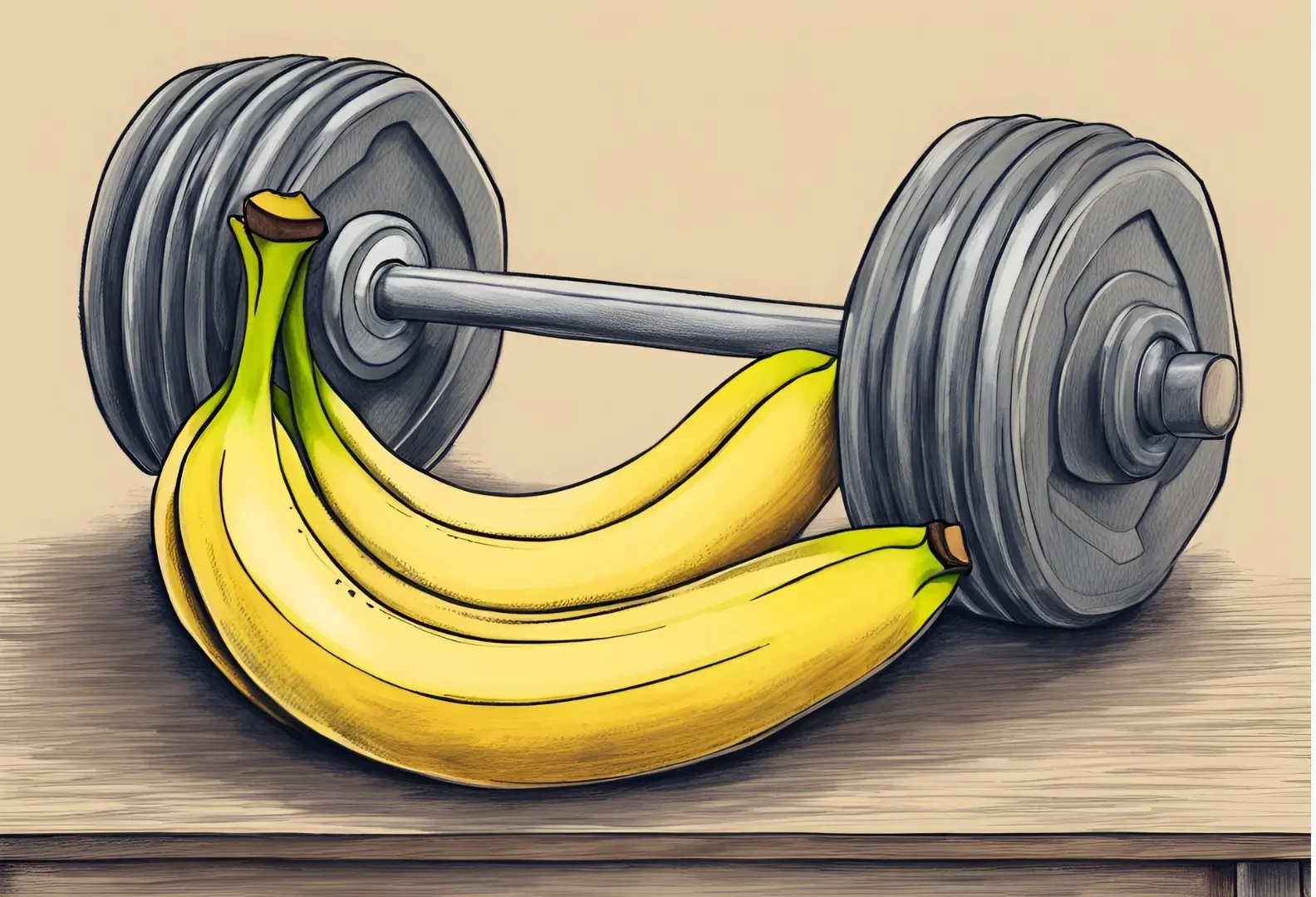Picture this: you’ve just finished an intense workout, and your muscles are screaming for relief. You’re tired, sore, and in desperate need of something to help your body recover. As you rummage through your gym bag, you spot a humble yellow fruit – the banana. You’ve heard whispers in the locker room about its magical powers for muscle recovery, but is there any truth to these claims? Are bananas good for muscle recovery?
Proper nutrition is just as crucial as the workouts themselves. What you eat before, during, and after exercise can significantly impact your performance, recovery, and overall progress. Among the myriad of foods touted as post-workout wonders, bananas have gained a reputation as a go-to snack for many athletes and fitness enthusiasts.
But why exactly are bananas so popular in the realm of muscle recovery? Is it just a coincidence that they’re often found in the hands of exhausted runners at the finish line or in the gym bags of weightlifters? Or is there something special about this unassuming fruit that makes it a powerhouse for post-exercise recovery?
In this article, we’ll peel back the layers of the humble banana and explore its nutritional profile and uncover how are bananas good for muscle recovery. We’ll dive into the science behind the claims and examine how bananas’ unique combination of carbohydrates, potassium, magnesium, and vitamin B6 work together to support your muscles after a tough workout.
Nutritional Profile of Bananas

To find out why are bananas good for muscle recovery, we must first find out about the nutritional profile of bananas. Bananas are a nutritional powerhouse, packed with essential vitamins, minerals, and other beneficial compounds. Here’s a closer look at the impressive nutritional profile of this popular fruit:
Macronutrients
One medium banana (about 100 grams) contains approximately:
- Calories: 89-112
- Protein: 1 gram
- Fat: 0 grams
- Carbohydrates: 22.8-29 grams
- Fiber: 2.6-3 grams
- Sugar: 12.2-15 grams
The carbohydrate content of bananas changes as they ripen. Unripe bananas contain more resistant starch, which functions like fiber, while ripe bananas have more simple sugars.
Micronutrients
Bananas are an excellent source of various vitamins and minerals, including:
- Potassium: 450-537 milligrams (9-11% DV)
- Vitamin C: 10.3-13.1 milligrams (12-14% DV)
- Vitamin B6: 0.4 milligrams (25-33% DV)
- Magnesium: 31.9-40.5 milligrams (8-10% DV)
- Copper: 0.12 milligrams (13% DV)
- Manganese: 0.32 milligrams (16% DV)
Bananas also contain smaller amounts of other essential nutrients, such as vitamin A, iron, and zinc.
Fiber
One of the standout features of bananas is their fiber content. A medium banana provides about 3 grams of fiber, which is roughly 10% of the recommended daily intake. This fiber is a mix of pectin and resistant starch, both of which offer unique health benefits.
Pectin is a soluble fiber that can help regulate digestion, reduce constipation, and promote the growth of beneficial gut bacteria. Resistant starch, found primarily in unripe bananas, acts as a prebiotic, feeding the friendly bacteria in the colon.
Antioxidants and Phytonutrients
In addition to their impressive vitamin and mineral content, bananas are a good source of various antioxidants and phytonutrients. These include:
- Dopamine: Acts as an antioxidant in bananas, though it doesn’t cross the blood-brain barrier to affect mood.
- Catechins: Flavonoids with potent antioxidant activity, linked to a reduced risk of heart disease.
These plant compounds contribute to the numerous health benefits associated with banana consumption.
In summary, bananas offer a wide array of essential nutrients, fiber, and beneficial plant compounds, making them a nutritious and healthy addition to any diet. Their unique combination of carbohydrates, vitamins, minerals, and antioxidants supports various aspects of health, from digestion and heart health to energy production and mood regulation.
Based on the information provided in the search results, here is Section 3 on how bananas aid in muscle recovery:
How Are Bananas good for Muscle Recovery
Bananas are a popular post-workout snack among numerous athletes and fitness enthusiasts, and for good reason. To find out why are bananas good for muscle recovery, we must next find out how exactly it aids in muscle recovery. This humble fruit offers several key benefits that can help support muscle recovery after exercise.
Glycogen Replenishment
During intense workouts, your body depletes its glycogen stores, which are the primary fuel source for your muscles. Consuming carbohydrate-rich foods like bananas after exercise stimulates the production of insulin, a hormone that helps transport sugar from your blood into your muscle cells, where it is stored as glycogen. Bananas also increase insulin sensitivity in your muscles, making it easier for them to replenish glycogen stores after a workout.
Reducing Muscle Soreness and Inflammation
Bananas are packed with antioxidants and beneficial compounds like dopamine and polyphenols. This combination of carbohydrates and antioxidants may help prevent post-exercise inflammation, promoting faster recovery and reducing muscle soreness. A study found that the carbohydrates in bananas helped lower inflammation levels in cyclists after a 75-km ride.
Supporting Muscle Repair and Growth
Bananas contain several nutrients that play a role in muscle repair and growth. Vitamin B6, found in bananas, is involved in protein metabolism and helps your body generate and store energy in your muscles. Magnesium, another mineral in bananas, aids in muscle relaxation and recovery. When paired with a protein source, the carbohydrates in bananas can also help your body more efficiently use protein to build and repair muscle tissue.
Preventing Muscle Cramps
Muscle cramps can sometimes be caused by electrolyte imbalances, particularly low levels of potassium and magnesium. Bananas are an excellent source of both these minerals, making them an ideal snack for preventing and easing muscle cramps. The high water content in bananas also contributes to hydration, further helping to prevent cramping.
In summary, bananas are a convenient, affordable, and nutritionally dense post-workout snack that can help support muscle recovery by replenishing glycogen stores, reducing inflammation and soreness, aiding in muscle repair and growth, and preventing muscle cramps. Incorporating bananas into your post-exercise routine can be a simple yet effective way to optimize your recovery and get the most out of your workouts.
Optimizing Banana Consumption for Muscle Recovery

To maximize the muscle recovery benefits of bananas, it’s essential to consider the timing and quantity of your intake, as well as how to combine them with other recovery foods.
Timing and Quantity of Banana Consumption
The optimal time to consume bananas for muscle recovery is within the “two-hour window of opportunity” after your workout . During this period, your body is most efficient at absorbing and utilizing nutrients to replenish energy stores, repair muscle tissue, and reduce inflammation.
As for the quantity, consuming one to two medium bananas (about 100-200 grams) post-workout should provide sufficient carbohydrates and nutrients to support recovery. However, individual needs may vary depending on factors such as body size, workout intensity, and overall diet.
It’s also worth noting that bananas can be consumed before or during exercise to provide a quick source of energy and help maintain blood sugar levels . Eating a banana 30-60 minutes before a workout can give you a sustained energy boost without causing digestive discomfort.
Combining Bananas with Other Recovery Foods
While bananas alone offer numerous benefits for muscle recovery, pairing them with other nutrient-dense foods can further enhance their effects. Here are some ways to combine bananas with other recovery foods:
- Protein sources: Consuming bananas with a source of protein, such as a protein shake, Greek yogurt, or a handful of nuts, can help promote muscle repair and growth. The combination of carbohydrates and protein has been shown to be more effective for muscle recovery than either nutrient alone.
- Healthy fats: Adding a source of healthy fats, like nut butter or avocado, to your banana snack can help slow down the absorption of carbohydrates, providing a more sustained energy release and reducing inflammation.
- Other fruits and vegetables: Mixing bananas with other antioxidant-rich fruits and vegetables, such as berries, spinach, or kale, can further boost the anti-inflammatory and recovery-promoting properties of your post-workout meal.
- Recovery smoothies: Blending bananas with other recovery foods, like protein powder, Greek yogurt, milk, or nut butter, can create a delicious and convenient post-workout smoothie that covers all your recovery needs.
By optimizing the timing, quantity, and combination of bananas with other recovery foods, you can create a powerful post-workout nutrition strategy that supports muscle recovery, reduces soreness, and helps you get the most out of your training.
Remember, while bananas are an excellent addition to your recovery routine, they should be part of a well-rounded diet that includes a variety of nutrient-dense foods. Consulting with a registered dietitian or sports nutritionist can help you develop a personalized recovery plan that meets your specific needs and goals.
Conclusion
So are bananas good for muscle recovery? Yes, Bananas are a powerful tool for muscle recovery. They have carbs, potassium, magnesium, vitamin B6, and antioxidants. Eat them after workouts, alone or with other foods. This helps restore energy, reduce soreness, repair muscles, and prevent cramps. For best results, eat a balanced diet, drink water, and get rest. Make bananas a regular part of your post-workout routine to support muscle recovery and growth.
Today we talked about how are bananas good for muscle recovery. Here are some other articles that you might like:
What are the Best Fruits to avoid for Weight Loss?
What are the Best Cereal for Weight Loss?
Are Bananas good for Muscle Recovery?
The Best Period Comfort Food: Feel Better Instantly
What are the Best Fruits for Muscle Gain?
What are the Best Vegetables to avoid for Weight Loss?
ADHD Comfort Food: Try These Now!



